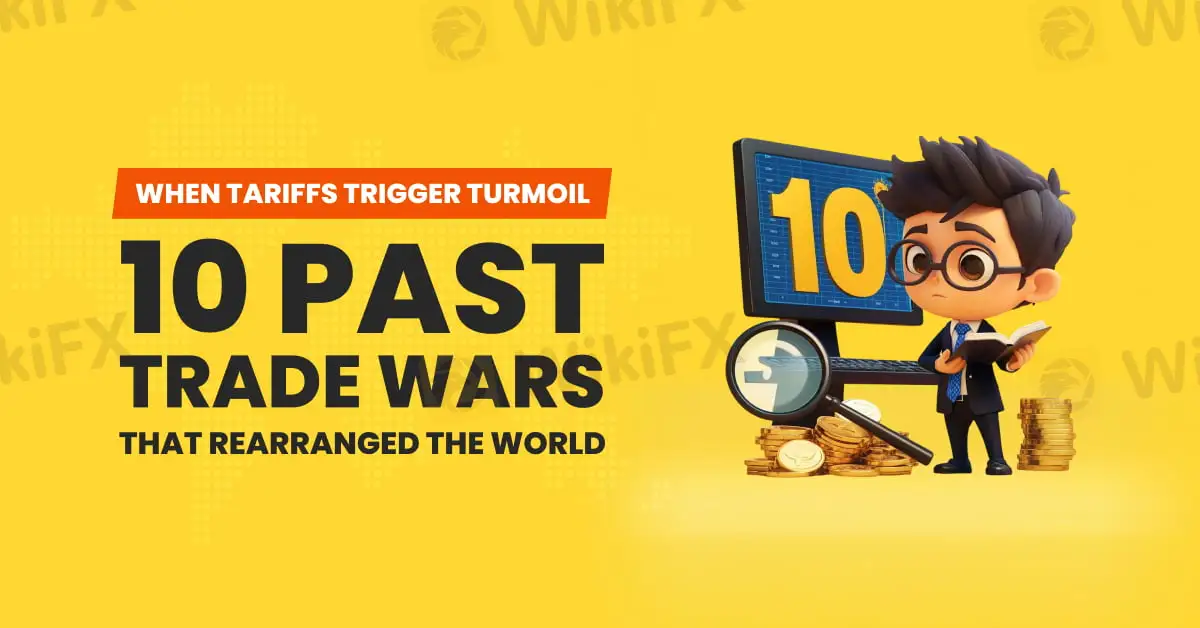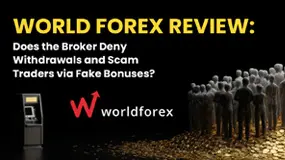简体中文
繁體中文
English
Pусский
日本語
ภาษาไทย
Tiếng Việt
Bahasa Indonesia
Español
हिन्दी
Filippiiniläinen
Français
Deutsch
Português
Türkçe
한국어
العربية
When Tariffs Trigger Turmoil: 10 Past Trade Wars That Rearranged the World
Abstract:Far from being mere policy tools, tariffs and trade restrictions have repeatedly served as catalysts for economic upheaval, diplomatic rifts, and even armed conflict. Here are ten historically significant trade wars that altered the course of nations and the global economy.

Trade wars might seem like issues for economists and politicians, but they have often played a major role in shaping global events. From early tax revolts to recent tariff battles between world powers, these disputes have influenced economies, caused political tensions, and even led to armed conflict. Here are ten key trade wars that left a lasting mark on history.

One of the first trade-related uprisings in the United States began in 1791 when the government put a tax on whiskey. Farmers in Pennsylvania, who used whiskey as a way to make money from surplus grain, felt the tax was unfair. They refused to pay and organised a revolt. The government eventually sent troops to end the rebellion, showing that it had the power to enforce national tax and trade laws.

After the Napoleonic Wars, Britain introduced the Corn Laws in 1815. These tariffs made imported grain more expensive in order to protect British farmers. But the result was higher food prices, which hurt workers in towns and cities. Public pressure led to the repeal of the Corn Laws in 1846, marking the beginning of Britains move toward free trade.

In the mid-1800s, China tried to stop British traders from selling opium, a drug that was causing serious problems across the country. Britain responded by sending warships. Two wars followed: one from 1839 to 1842 and another from 1856 to 1860. China lost both and was forced to sign trade agreements that heavily favoured Britain. These wars weakened Chinas control over its economy and opened the country to foreign influence.

Although slavery was the main cause of the American Civil War, disagreements about tariffs also added to the divide. The North wanted high tariffs to protect its factories, while the South, which relied on exporting crops, wanted low tariffs. These economic differences added more tension to an already divided country.

During the Great Depression, the U.S. introduced the Smoot-Hawley Tariff Act in 1930 to protect American industries. It raised taxes on many imported goods. Other countries responded with their own tariffs, which caused global trade to shrink. Instead of helping the economy recover, it made the situation worse.

In the early 1960s, European countries placed tariffs on cheap American chicken. In 1963, the U.S. responded by taxing European goods such as brandy and potato starch and even German-made Volkswagen vans. While it seemed like a strange dispute, the effects lasted for years and influenced how the U.S. handled car imports.

By the 1980s, Japan had become a major exporter of cars and electronics. The U.S. accused Japan of unfair trade practices and put limits on Japanese imports. Japan agreed to reduce exports to avoid further conflict. This trade war helped shape modern rules around international trade and competition.

In the 1990s, the U.S. and the European Union clashed over banana imports. The EU gave trade benefits to banana producers in former European colonies, mainly in the Caribbean. The U.S., supporting American banana companies, challenged these rules at the World Trade Organization. The dispute lasted for nearly two decades and was finally settled in 2009.

The dispute over softwood lumber between Canada and the U.S. dates back to 1982 but became more serious in the early 2000s. The U.S. says Canada unfairly helps its lumber industry through government support, making Canadian wood cheaper. Tariffs, court cases, and trade talks have continued for years, with no long-term solution.

In 2018, President Donald Trump started a trade war with China by putting tariffs on hundreds of billions of dollars' worth of goods. China quickly responded with its own tariffs. The conflict affected global supply chains and created uncertainty in many industries. Even after some agreements were reached, the trade relationship between the two countries remains tense and hits another climax in 2025.
These ten trade wars show that tariffs and trade rules are not just about economics, but they often reflect deeper political and social divides. Sometimes they protect local industries, but just as often, they cause long-term damage and spark wider conflicts. Understanding the history of trade wars helps us see how closely linked economic policy is to global stability.

Disclaimer:
The views in this article only represent the author's personal views, and do not constitute investment advice on this platform. This platform does not guarantee the accuracy, completeness and timeliness of the information in the article, and will not be liable for any loss caused by the use of or reliance on the information in the article.
Read more

World Forex Review: Does the Broker Deny Withdrawals and Scam Traders via Fake Bonuses?
Does World Forex prove to be a not-so-happy trading experience for you? Do you struggle to withdraw your funds from the Saint Vincent and the Grenadines-based forex broker? Do you witness hassles depositing funds? Failing to leverage the World Forex no deposit bonus, as it turned out to be false? These accusations are grabbing everyone’s attention when reading the World Forex review online. In this article, we have shared some of these. Read on!

【WikiEXPO Global Expert Interviews】Sheikh Muhammad Noman: The Future of Investment in the GCC
As WikiEXPO Dubai concludes successfully, we had the pleasure of interviewing Sheikh Muhammad Noman, the Founder and CEO of Pegasus Capital, brings over 20 years of profound expertise as an Investment Professional. He specializes in investment securities, risk calculations, financial engineering, and structuring business models with minimal risk. As a Founder and Business Development Partner, he oversees diversified investment and business portfolios for leading family offices throughout the GCC region, with a focus on sectors such as green energy, digital assets, and finance. His deep understanding of financial markets has been instrumental in crafting strategic investment solutions that significantly enhance portfolio performance.

Seacrest Markets Exposed: Are You Facing Payout Denials and Spread Issues with This Prop Firm?
Seacrest Markets has garnered wrath from traders owing to a variety of reasons, including payout denials for traders winning trading challenges, high slippage causing losses, the lack of response from the customer support official to address withdrawal issues, and more. Irritated by these trading inefficiencies, a lot of traders have given a negative review of Seacrest Markets prop firm. In this article, we have shared some of them. Take a look!

GKFX Review: Are Traders Facing Slippage and Account Freeze Issues?
Witnessing capital losses despite tall investment return assurances by GKFX officials? Do these officials sound too difficult for you to judge, whether they offer real or fake advice? Do you encounter slippage issues causing a profit reduction on the GKFX login? Is account freezing usual at GKFX? Does the United Kingdom-based forex broker prevent you from accessing withdrawals? You are not alone! In this GKFX review guide, we have shared the complaints. Take a look!
WikiFX Broker
Latest News
Interactive Brokers Expands Access to Taipei Exchange
Simulated Trading Competition Experience Sharing
WinproFx Regulation: A Complete Guide to Its Licensing and Safety for Traders
Axi Review: A Data-Driven Analysis for Experienced Traders
INZO Regulation and Risk Assessment: A Data-Driven Analysis for Traders
Pepperstone CEO: “Taking Down Scam Sites Almost Every Day” Becomes “Depressing Daily Business”
The CMIA Capital Partners Scam That Cost a Remisier Almost Half a Million
Is Seaprimecapitals Regulated? A Complete Look at Its Safety and How It Works
eToro Cash ISA Launch Shakes UK Savings Market
Cleveland Fed's Hammack supports keeping rates around current 'barely restrictive' level
Currency Calculator



